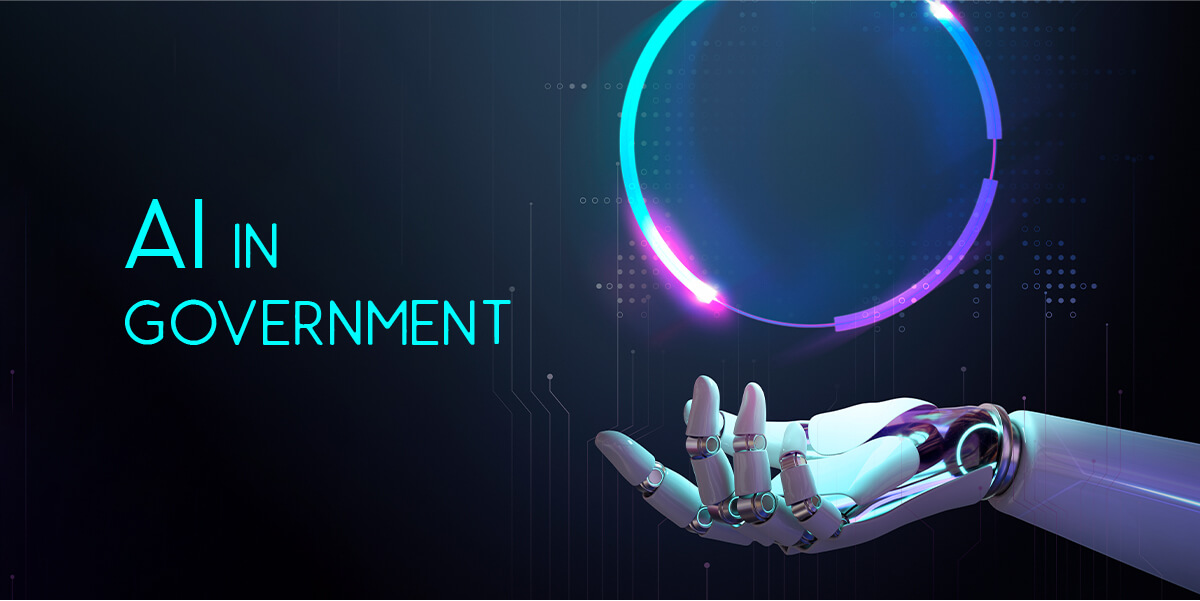AI in government has the potential and capacity to revolutionize the way government entities operate in order to provide public services. By automating various redundant and repetitive operations, the application of artificial intelligence in the government sector boosts efficiency and production. AI in government can free up human resources to conduct more productive and vital work.
Artificial intelligence use in the public sector is limited
At the moment, the public sector’s adoption of artificial intelligence is slow, uneven, and typically trails behind that of the private sector. Addressing the issues of artificial intelligence in the public sector is critical for speedier adoption.
According to research conducted by Gartner, 42 percent of government employees surveyed who have not worked with AI solutions understand that AI is a means to getting work done.
The Difficulties of Implementing AI in Government
Inadequate skills, competence, and knowledge
- The lack of information, competence, and experience among government personnel is one of the primary obstacles of artificial intelligence in the public sector.
- Many government agencies do not have in-house AI professionals.
- AI training is required in such cases.
- This guarantees that the government’s IT personnel understands and efficiently implements AI technology.
Bias in AI algorithms
- The prejudiced nature of AI algorithms is another barrier to successful AI implementation in government enterprises.
- If the data used to train these algorithms is biased, the AI system’s results may be prejudiced as well.
- This might have serious consequences, particularly in domains where the AI system’s conclusions have a big influence on people’s lives, such as medicine, healthcare, finance, criminology, immigration, and minority rights.
- Governments must guarantee that the data used to train AI systems is of high quality and varied, and that adequate bias-prevention mechanisms are in place.
Ethical implications of AI
- Aside from the problems described above, the ethical implications of AI add to the difficulties of deploying AI in the government sector.
- As artificial intelligence (AI) systems improve, they may be used to make judgments that humans cannot, such as selecting who should receive certain government benefits or services.
- Governments should establish clear and explicit standards and laws to ensure that AI is utilized ethically, transparently, and with full responsibility.
Advantages of AI in public sector
Artificial intelligence (AI) is a field of study and a technology that has the potential to greatly impact public policies and services in a variety of ways.
Here are the advantages of using AI in government organizations.
- Effective service delivery in the public sector.
- Automate tedious and repetitive tasks
- Identify fraudulent activities and prevent them from happening.
- Smarter policymaking.
- improve the engagement of citizens.
- Boost effectiveness and streamline business operations.
- Free up employees who can be utilized for more important tasks.
- Improve the delivery of public services by providing citizens with tailored and on-time support and assistance.
While automation can help cut costs and enhance service delivery, the main strength of AI will be in its capacity to maximize the value of the vast volumes of citizen data gathered through contacts with government agencies on a daily basis.
The use of AI in government can help the public sector entities become more efficient and smarter. AI in public sector to become data-driven may fundamentally transform practically every element of business, from lowering case processing costs to decreasing fraud to detecting criminals using face recognition.
However, the potential to tailor citizen-centric initiatives will be its primary advantage. By combining data from interactions with various back-end systems and social sentiment, governments can create an accurate profile of each citizen—their wants, requirements, and preferences—and adjust both service creation and delivery to their specific needs.
AI has the ability to transform government operations and increase individuals’ well-being. To genuinely comprehend this commitment, governments must carefully address the challenges surrounding the use of artificial intelligence in public sector. AI may be a strong tool for enhancing the public experience and raising the efficacy and efficiency of government entities if the correct strategy and rules are in place.
Everyone has interacted with a government organization at some point or another and is well aware of the experience of being pushed from pillar to post without really getting satisfying solutions. People now expect more from their government. However, governments and public sector organizations must balance the reducing budgets with the ever-increasing demands of citizens. Trying to transform facilities without increasing resources entails working smarter and leveraging new digital technologies, particularly artificial intelligence (AI), to provide effective service delivery in the public sector.

